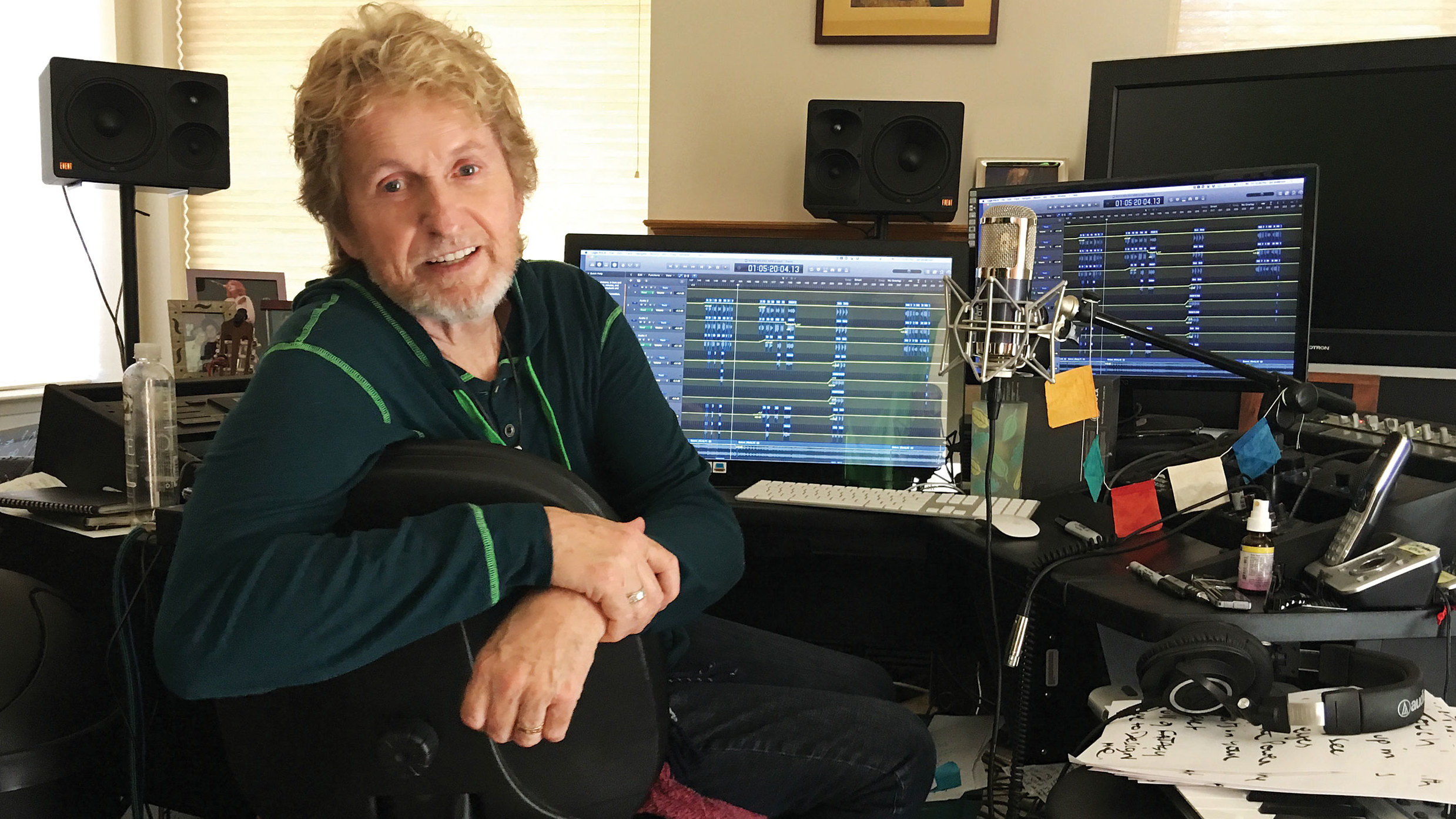The back cover of Yes’ 1978 album Tormato shows the five band members wearing sunglasses and looking in different directions. “That was my idea,” says Jon Anderson now. “Because we were all going in different directions.”
Anderson left Yes, for the first time, soon after. He’d grown weary of “the crapola”, and being asked: “Why don’t you write another hit?”
Anderson has never done what his bandmates, his record company or, one suspects, his bank manager might have wanted him to. As a solo or collaborative artist, he’s made chart-topping electro-pop records, a commercially ruinous Latin album and a collection of Celtic songs with musicians from his local boozer, The Frog & Peach in San Luis Obispo. But he’s always stayed true to himself.
The die was cast when he signed a solo deal with Virgin after leaving Yes. “They signed me and old whatshisname… Phil Collins in the same month,” says Anderson, who went to the south of France to work on two musical projects: one about the Russian-French artist Marc Chagall; the other based on writer Daphne Charteris’ book, A True Fairy Tale.
When Virgin heard both works-in-progress, they asked for their advance back. “And then Phil goes to No.1 [with Face Value] for a thousand years,” Anderson laughs. “Gosh! I misjudged that situation.”
I’d walk in the studio with Vangelis, start singing and three hours later we’d done three songs. It took Yes three hours to get ready to do one song.
Instead, he re-signed with Atlantic and released his second solo album, Song Of Seven. It brought Anderson’s quest for spiritual enlightenment into the 80s and was a modest success. Anderson still loves it. “The lyrics dance,” he explains.
In the same year, Jon & Vangelis’ 1980 debut, Short Stories, broke into the UK Top 5, and rebranded the two 70s warhorses (though Anderson was only 36) as nouveau electro-pop stars.
“I loved working with Vangelis because he was so creative,” Anderson says. “I’d walk in the studio, start singing and three hours later we’d done three songs. It took Yes three hours to get ready to do one song.”
The duo’s second album, 1981’s The Friends Of Mr Cairo, included the hit I’ll Find My Way Home, plus State Of Independence, a Top 20 hit for soul singer Donna Summer. “Someone sent it to her producer, Quincy Jones. I always thought The Friends Of Mr Cairo was a great album for radio.”
In the nicest possible way, though, Jon Anderson must be an A&R man’s worst nightmare. He made 1982’s Animation with Bowie’s producer Tony Visconti, then followed it up with 3 Ships, an album of Christmas carols. Neither were hits.
After Anderson rejoined Yes and conquered the UK and American charts with 1983’s Owner Of A Lonely Heart and its parent album 90125, Columbia signed him as a solo artist. “I was pretty famous then. Your stock goes up after you have a hit. So the record company asked me want I wanted to do.”
Columbia presumably wanted Owner Of A Lonely Heart times 10; Anderson suggested an album of Cuban big-band music. “So they stopped the cheque,” he laughs.
As a compromise, he agreed to work with one of his heroes, Motown songwriter Lamont Dozier, recording in LA with session aces Toto. “I had a great time,” he says. “I thought I was going to be a pop star again.”
But In The City Of Angels (1988), an album of soft soul rock, bombed everywhere – except Quebec. “I played a festival in Quebec years later and it was still being played on the radio. The promoter told me, ‘This was a big album here.’ I said, ‘Really? This is the only place in the world it was, then.’”
Anderson partly blames its failure on “old whatshisname… Phil Collins”. “Basically, it was Phil again,” he laughs. It was the era of Genesis’ Invisible Touch and its never‑ending supply of singles: “Phil’s voice in that period was so perfect for radio. My voice was not so good for radio.”
Anderson’s solution was to make a third Jon & Vangelis album, 1991’s Page Of Life, and to sign to the world music indie Windham Hill for Deseo, his 1994 collection of South and Latin American music. He was booked to play dates in South America: “But it was like taking coals to Newcastle. We had to change the show after the first gig. The audiences just wanted to hear Yes music.”
Anderson’s biggest non-Yes hits were with Vangelis, but there are no reunion plans – they haven’t spoken in years. “His manager messed him up,” sighs Anderson. “The last time we spoke, Vangelis said he was tired of Jon & Vangelis and tired of the business. I said, ‘Okay, I still love you, brother…’”
Anderson has released 14 solo studio albums so far. Asked if there’s one he wishes had more appreciation, he says: “All of them.” But if he had to choose one, it would be Toltec, a 1996 concept album including new age, spoken word, jazz and a storyline about an immortal Native American tribe. “It’s not very well-known,” he understates.
For Anderson, music is a source of eternal wonder. “Sometimes a record works, sometimes it doesn’t,” he offers. “But when it really works, it’s so inspiring.”
Jon Anderson’s not done yet. Phil Collins beware.
Jon Anderson Is The 2016 Prog God
The Story Behind Jon Anderson's debut solo album Olias Of Sunhillow
Jon Anderson and Roine Stolt: The story behind new album Invention Of Knowledge

